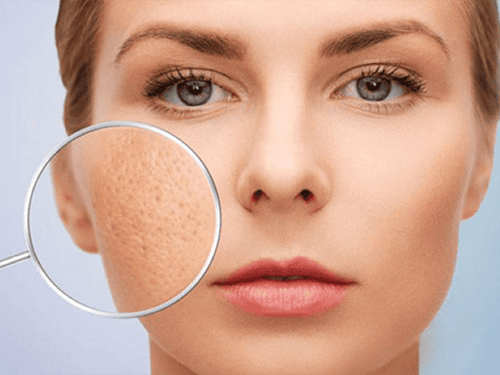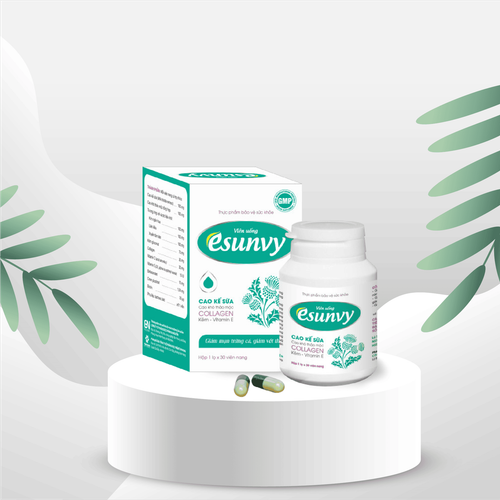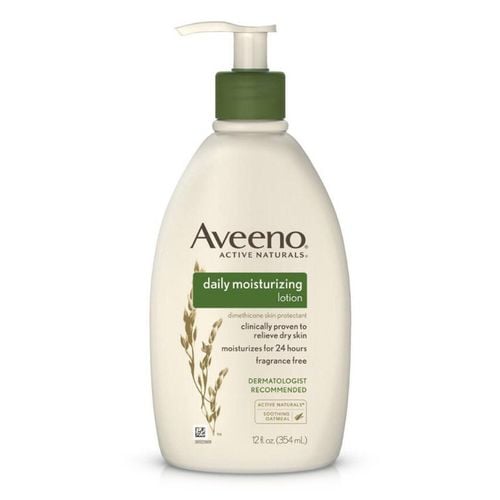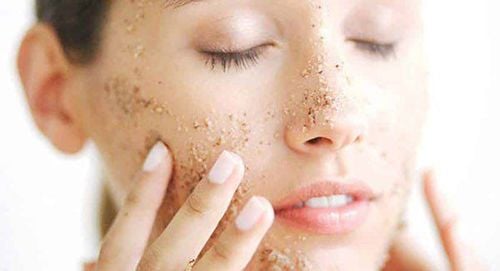This is an automatically translated article.
Skin type is usually determined by genetics or hormonal changes. Certain daily habits and environmental factors such as pollution and age can make skin worse. Therefore, understanding the properties of skin types will have appropriate care and avoid aging.
1. Determine your basic skin type
The most important step of skin care is to learn the specific skin type and how it adapts to circumstances and environmental conditions. Everyone has different skin.
Skin is divided into 5 types that are normal skin, dry skin, oily skin, combination skin and sensitive skin. Here are the two easiest ways to determine skin type at home:
Bare face method: Wash your face thoroughly with a mild cleanser and then gently pat dry your skin. Leave skin bare (do not apply any moisturizers, serums, or additional treatments). After 30 minutes, check your cheeks, chin, nose and forehead for shine. After another 30 minutes, assess if your skin is dry, especially if you smile or make any other facial expressions. If your skin feels tight, it may be dry. If there is shine (pay attention to the area above the nose and forehead) then your skin is mostly normal or combination. If there are shadows on your cheeks, other than your forehead and nose, it could be oily skin.
Matte method This method works faster and often shows a great difference between dry and oily skin. Gently place the blotting paper on different areas of the face. Hold the paper facing the light to determine the amount of visible oil. If the paper has little or no oil, it means dry skin, and if the paper absorbs oil from the forehead and nose area, it means normal skin. Finally, blot the oil in all areas that are likely to be oily.

Có thể xác định loại da dễ dàng ngay tại nhà
2. Skin types and care
2.1. Normal skin
People with skin types that are often difficult to describe are oily or dry. Oiliness or dryness is rare and if it does, this skin type tends to easily deal with and get rid of it.
The pores of the skin are usually small, not indented or easily visible. The skin is usually not shiny and it does not tend to crack or peel. Skin types usually have a few wrinkles and skin tone is usually even, with no discernible blemishes.
Even if you have a normal skin type with a few minor blemishes, there are a few ways you can keep your skin clean and follow a proper skin care routine that can keep your skin healthy. radiant and healthy skin.
Normal skin type is not synonymous with perfect skin. Because skin will also change over time. That means people who don't have a skin problem at the moment but may experience it as they age or due to environmental conditions or which may include pregnancy or going through menopause. terrible . Because, when hormone levels change either due to any reason or due to using a product, sensitive skin will experience hormonal acne.
People with normal skin types should use products that do not make their skin feel too oily and should also avoid products that are too drying. Normal skin does not require complicated care like other skin types. However, to maintain a healthy skin, it is important to follow a regular skin care regimen.

Da thường không đòi hỏi sự chăm sóc phức tạp như các loại da khác
2.2. Dry skin
Dry skin will make you feel tight or may also have scaly or flaky patches. People with dry skin tend to have very small (invisible) pores and may experience wrinkles earlier and will experience skin irritation more often.
Causes of Dry Skin Causes of dry skin can be due to a variety of factors. For some people, dry skin is genetic. This factor will affect the amount of sebum produced in the skin's oil glands. Sebum is responsible for keeping the skin soft and supple.
For many people, dry skin is caused by a lack of moisture, but the amount of water in dry skin is often found at the same level as oily skin. So, adding water to dry skin is actually counterproductive to treating this skin condition.
Importance of moisturizer for dry skin Using a moisturizer for dry skin is essential. It is very important to maintain a regular skin care regimen. People with dry skin often experience mild allergic reactions and tend to benefit from lotions rather than lotions. Because, cream contains more oil, better moisturizing. However, before using any moisturizer, you need to check if your skin has an allergic reaction to that cream or you can see a dermatologist for advice and choose a suitable cream. fit.
Some ways to improve dry skin:
Lifestyle and habits changes: Changing some habits in your life can lessen the effects of dry skin. For example, do not take a long bath or shower with very hot water. Using an air humidifier helps keep skin soft and supple. However, it is necessary to regularly clean and change the water for the machine to avoid bacteria and mold growth.

Da khô cần được cấp ẩm thường xuyên để da mềm mại
2.3. Oily skin
People with oily skin often notice a lot of shine on their face and may even face severe acne.
Causes of Oily Skin Oily skin is the result of both genetic factors and hormonal changes. People with a scalp with a genetic predisposition to active oil glands produce higher amounts of sebum (this oily substance keeps the skin soft and hydrated). This oil flows from the inside of the epidermis to the top of the skin through the pores and hair follicles.
For people with oily skin with a tendency due to changes in hormone levels, there will be increased androgen production which stimulates increased sebum production. When too much oil is produced, it clogs the pores and becomes pimples. Normally, oily skin is prone to breakouts like blackheads, whiteheads, pustules, and papules. At the same time, pores will be more visible due to enlargement and skin appears oily throughout the day.
Oily skin care Oil accumulation can cause dead skin cells to get trapped in pores and lead to acne blemishes. Although, using some products with ingredients like benzoyl peroxide can help with this, it can be counterproductive. Because these ingredients can trigger the skin to produce more oil. So it's important in oily skin care to gently exfoliate oily skin, such as salicylic acid. This acid is a natural exfoliant that gently sloughs off dead skin cells that can clog pores.
Those with oily skin have a better chance of showing signs of aging. Because, oily skin develops fewer wrinkles, and that means slower aging as well as better water retention.
Use moisturizer for oily skin. People with scalps often assume that they don't need to moisturize. But, if oily skin is not well-moisturized, it will actually cause the skin to produce more oil. So, choose a lightweight and oil-free moisturizer to keep skin soft and properly hydrated.
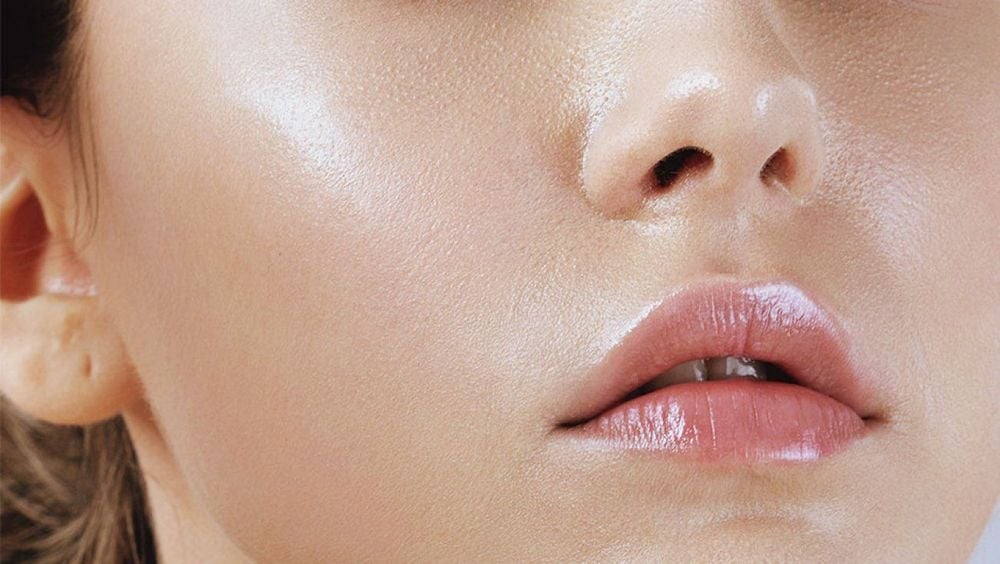
Da dầu làm cho các tuyến dầu hoạt động tạo ra lượng bã nhờn cao hơn
2.4. Combination skin
Combination skin with two or more different skin types on the face. Combination skin types often experience dry and flaky skin on certain parts of the face and excessive oil in others.
Combination skin is the most common skin type, but treatment is difficult to determine. Skin is usually shiny in the T-zone, which includes the forehead, nose, and chin. These areas tend to have more oil glands than other parts of the face like the cheeks.
Combination skin care tips
People with combination skin often find that chemical-based treatments, like benzoyl peroxide, can actually dry out dry areas on a bronzed face. triggering more sebum production in oily areas. However, when choosing products containing plant extracts such as green tea, cucumber and chamomile can soothe the skin, and reduce inflammation. People with combination skin tend to have flaking and dryness on the cheeks. These areas can be irritated by certain ingredients especially perfumes and fragrances. Therefore, choose fragrance-free skin care products to soothe and protect the skin. People with combination skin should use two creams in their skin care routine. A deep moisturizer is used on the cheeks and a lighter moisturizer on the oily parts of the face. Exfoliation is essential for people with combination skin. Using a natural exfoliator can help unclog pores and slough off dead skin cells, which are what contribute to dull skin.
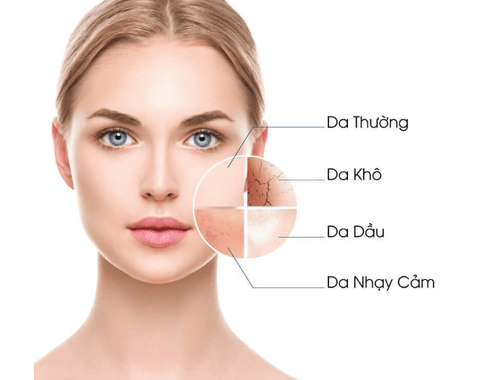
Da hỗn hợp thường rất khó điều trị
2.5. Sensitive skin
Sensitive skin types may exhibit characteristics of dry, scalp or combination skin. This skin type can be caused by skin conditions such as rosacea and allergies. So, avoid skin care methods that contain chemical ingredients.
Moreover, this skin type is also very prone to inflammation. Therefore, it is important to choose the right natural skin care method for sensitive skin to avoid any adverse reactions.
Each person will have a different skin type and body. Therefore, understanding the skin types will help you have the right skin care and protection direction.
If there is a need for consultation and examination at the Hospitals of the National Health System, please book an appointment on the website to be served.
References: webmd.com, bioclarity.com
Please dial HOTLINE for more information or register for an appointment HERE. Download MyVinmec app to make appointments faster and to manage your bookings easily.




